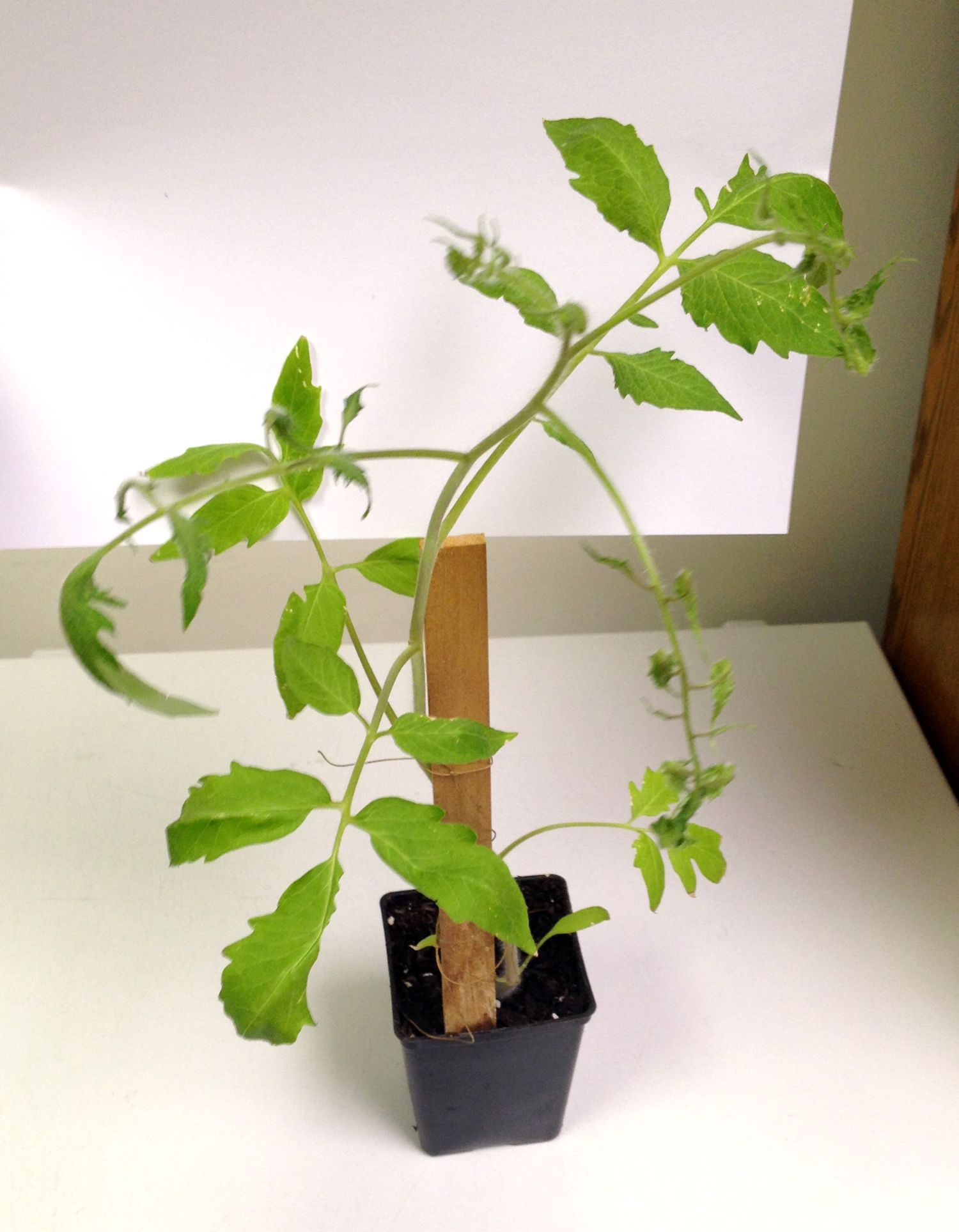Over-fertilized tomatoes and slow-growing fruits raise questions
Published 12:00 am Friday, May 2, 2014
SALISBURY — April had some crazy weather, and it is the time when people go outdoors to plant their summer gardens. With the weather and spring, the Cooperative Extension office has received numerous phone calls and emails inquiring about their plants, insects and what will be available from local farmers.
Question: Why do my tomatoes look misshapen; are they going to survive?
Answer: When receiving this type of question, Cooperative Extension loves photos and samples. Fortunately, this client brought in tomato plants and, as you can see in the photos, the leaves are greatly misshaped.
After further investigation, it was discovered that the client had used Miracle Grow potting soil and had added an additional amount of Miracle Grow fertilizer. The combination caused spindly and misshapen tomato plants. What the client did not realize was that there was already fertilizer in the potting soil. They had simply put too much fertilizer on the plants and caused them to have fertilizer damage. When growing your own transplants, make sure to read the label because some potting mixes have fertilizer already in the mix.
Question: What are these stinky lady bugs?
Answer: They are not lady bugs/beetles; this is an invasive insect called the Kudzu bug. They are similar in size and shape of the lady bug, but they have a mottled brown and green coloration. They are starting to come out of their winter homes, which unfortunately, are usually human houses. They enjoy wisteria, legumes, kudzu and soybeans. Be careful when you come in contact with them; they smell horrible. And, if you squish them, they can come in contact with your skin and have a painful chemical reaction. I had one on my forehead and thinking it was a tick, I about pinched it but thankfully, it dropped in the sink for me to discover what it was. Keep an eye out for them. They are attracted to white objects so don’t leave your white vehicle windows open; you may have more hitchhikers than you would like. They also tend to congregate on figs, peaches and other fruits. We have not witnessed any damage on the figs, peaches, etc. but if you think they have caused problems to your plants, please give us a call so we can properly identify the issue.
Question: My figs, blueberries and Muscadines have not come out yet. Are they OK?
Answer: Figs have been late to arrive this year, but some of our fruits were damaged by the severe frosts. Cooperative Extension has received numerous calls about dead or dying plants, and most look to be from the frosts that we received this year. Unfortunately, there is not anything we can do to save these plants if frost killed them. We have had some figs starting to come out from the base of the plant, but many did not survive this year. This is why selecting the right plant for the right place is so very important. Always know the needs of your plants and if they are cold sensitive, be sure to keep them away from low lying areas and tree lines where frost is most prevalent.
Question: Will this bad weather injure the crops of our farmers?
Answer: It all depends on the weather. Most farms can handle some frosts since they tend to try to plant when the danger of frost has passed or use some season extension, row covers, greenhouses, etc. to bypass mother nature. But when we receive strong winds, hail, excessive rain, humidity, tornadoes, etc., this can wreak havoc on crops. The bad storms across the Southeast have destroyed many crops. Most plants cannot handle the winds, too much rain or hail. It is also bad after the storms. With lots of rain, wind and the temperatures starting to rise, disease can spread and take hold of many fruit and vegetable crops. Farming is not easy, and every year, farmers have to take the gamble of whether the weather will be in their favor. Here is hoping for a great growing season with zero or minimal chaotic weather impacts.
Starting your own tomatoes: http://www.ces.ncsu.edu/hil/hil-8107.html
Kudzu bugs: http://www.ces.ncsu.edu/depts/ent/notes/Urban/kudzubug.htm
Protecting plants from the cold: http://www.ces.ncsu.edu/hil/hil-604.html
Right Plant Right Place: http://guilford.ces.ncsu.edu/2012/04/right-plant-right-place/
For more information on plants, insects, or trouble shooting problems, contact your local Extension Agent, Danelle Cutting, at 704-216-8970.




